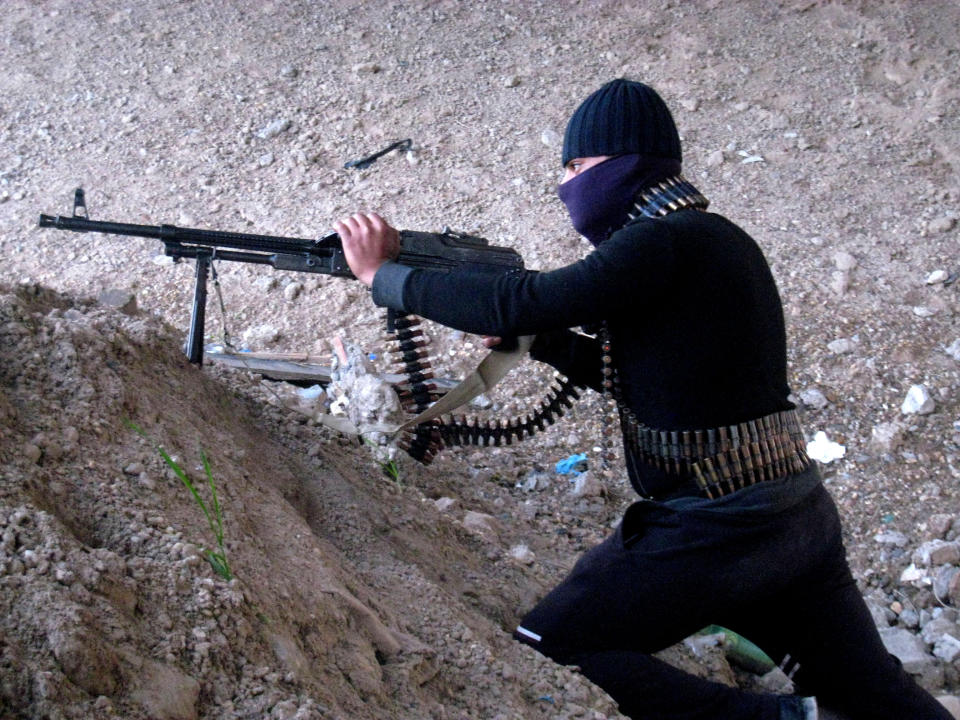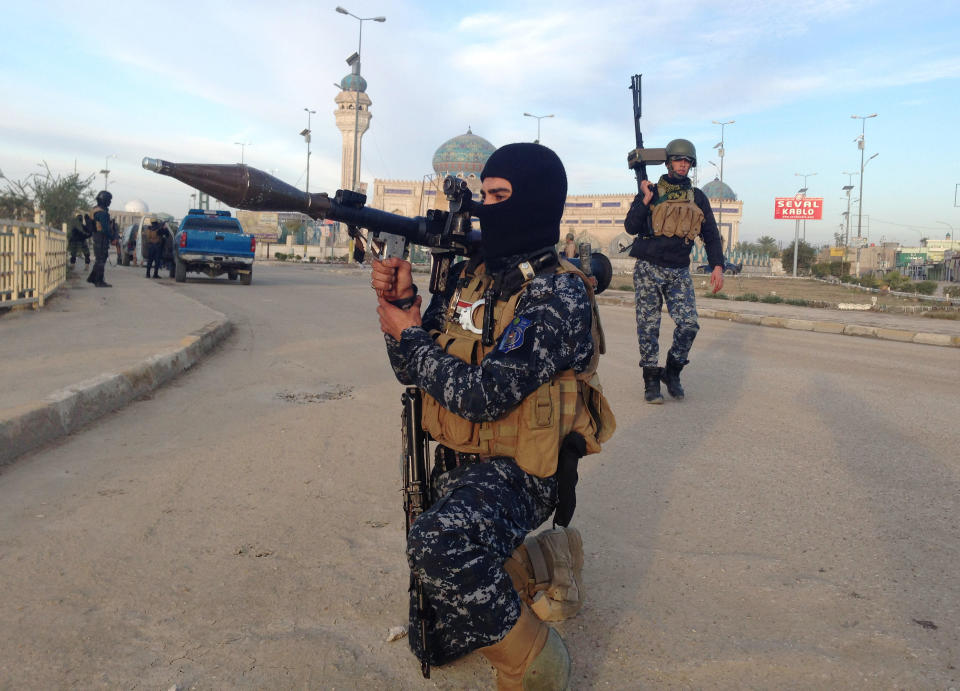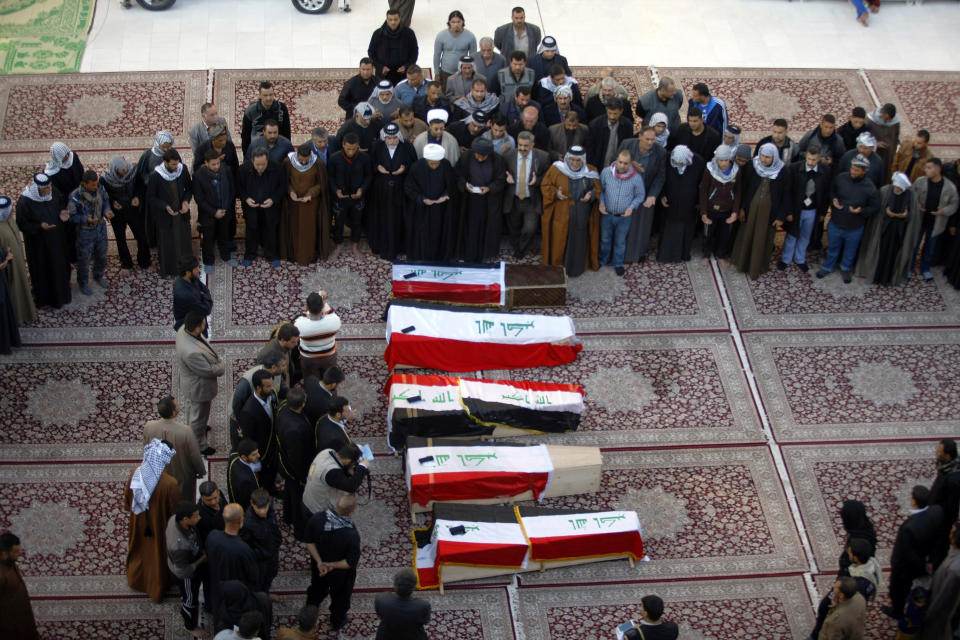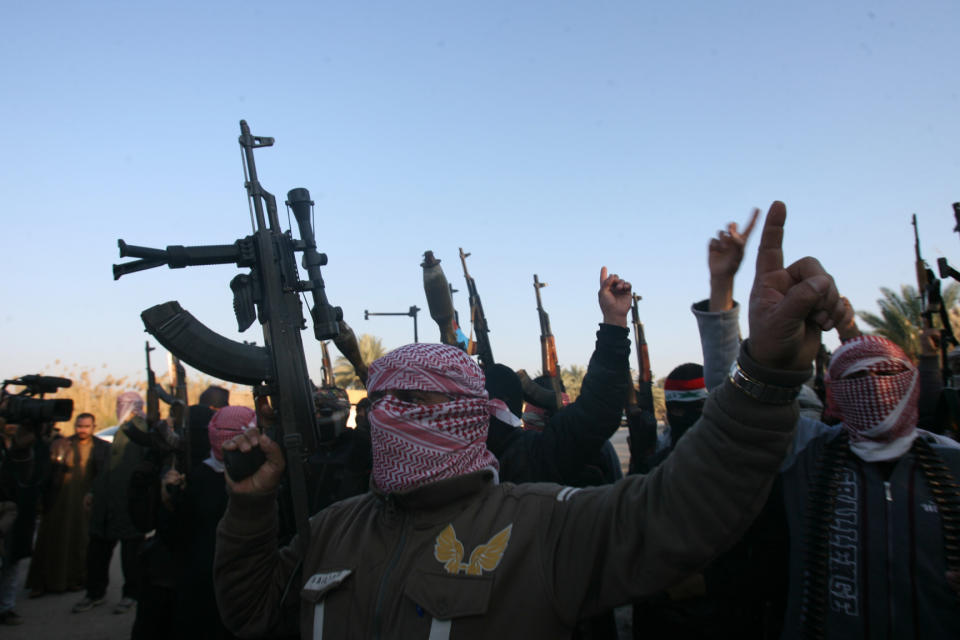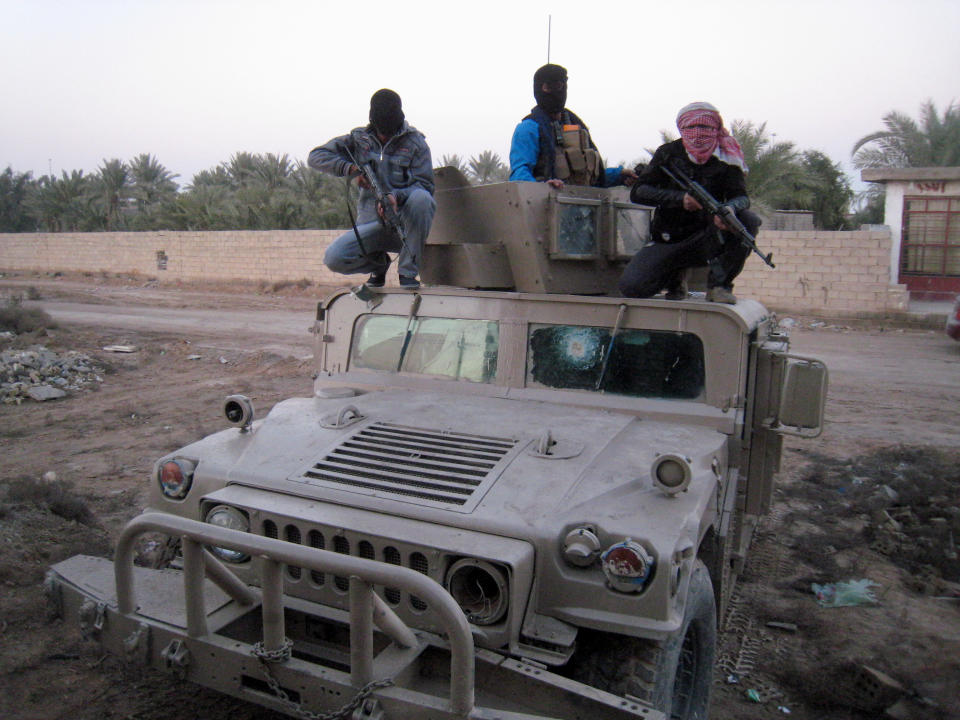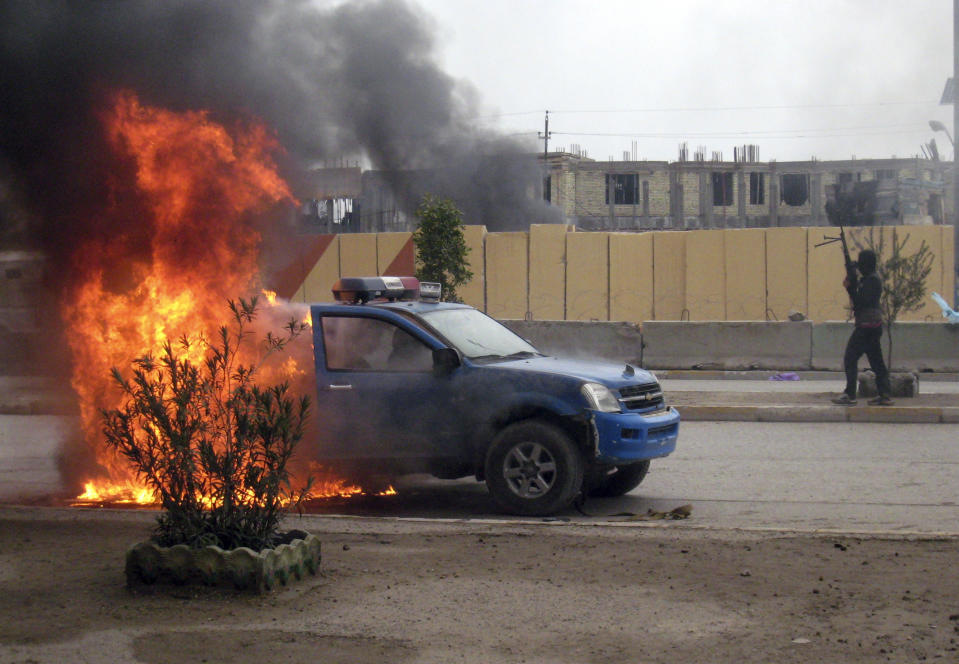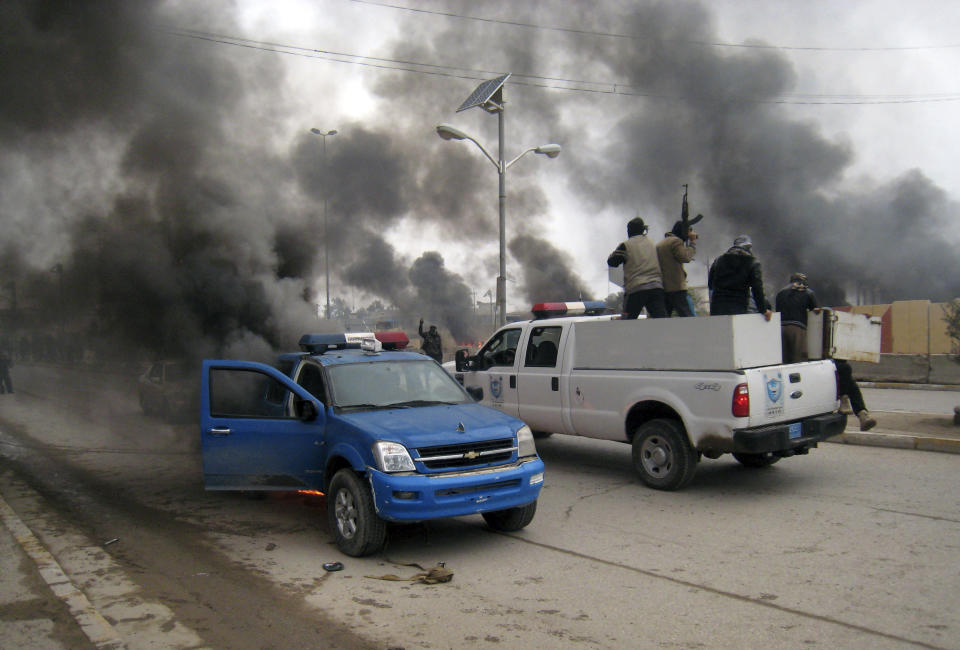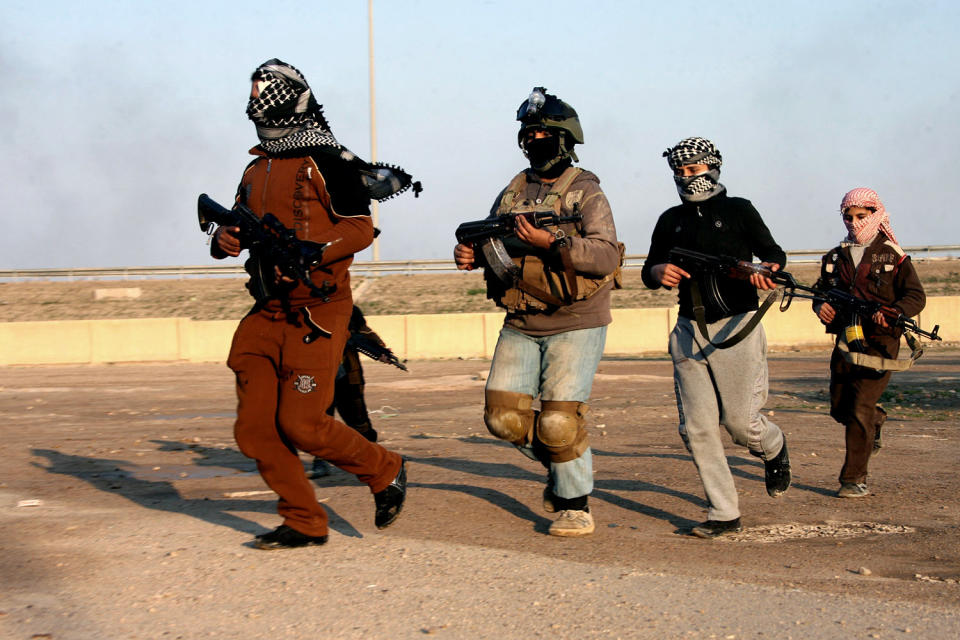Iraq turns to Sunni tribes, but distrust remains
BAGHDAD (AP) — Iraqi officials have begun recruiting thousands of Sunni fighters on the government payroll, supplying weapons to other volunteer tribal fighters and pledging millions of dollars in aid to restive Anbar province as they try to beat back extremist Sunni jihadi militants.
The militants are battling for control of mainly Sunni areas west of Baghdad in a key test of the Shiite-led government's ability to maintain security more than two years after the withdrawal of U.S. troops.
But the push to expel the jihadis — members of the Islamic State of Iraq and the Levant, until recently al-Qaida's powerful affiliate in Iraq — is complicated by divisions among the tribes that form the social fabric of the besieged city of Fallujah and other parts of Anbar, raising questions over whether the government needs to make a bigger investment to win over Sunni skeptics.
Many in the Sunni province of Anbar, whatever their views on the militants, harbor deep resentments stemming from years of perceived discrimination, government neglect and a lack of access to civil service jobs that are the backbone of the Iraqi economy.
"The problem in Anbar goes far beyond funds or services. It is a problem of mistrust and marginalization," said Sunni lawmaker Hamid al-Mutlaq.
Prime Minister Nouri al-Maliki's government nonetheless has begun spending more on the minority Sunni community, particularly after militants seized control of Fallujah and other areas in the province six weeks ago.
The United Nations refugee agency estimates that as many as 300,000 Iraqis have been displaced because of insecurity in Anbar.
Iraqi officials have pledged at least $20 million to cover immediate aid needs, according to government spokesman Ali al-Moussawi. They have also provided weapons to tribesmen fighting the militants and promised that their families will receive the same state benefits as fallen soldiers if they are killed.
The Iraqis are reviving the Sahwa, the Sunni tribal militias that joined U.S. troops against al-Qaida at the height of the Iraq war and were credited with helping turn the tide against the insurgency.
Al-Maliki's adviser for reconciliation and Sahwa, Amer al-Khuzaie, said authorities have recruited 4,000 Sahwa fighters in Anbar, 9,000 in areas around Baghdad and another 1,500 in the northern flashpoint town of Tuz Khormato since the current unrest began in late December. They are being paid the equivalent of about $430 a month.
Other tribesmen who have volunteered to fight alongside government forces are being given weapons from the caches of security forces, he said. Those volunteers aren't being paid, however, because doing so would require additional bureaucracy and government budget allocations, and it is unclear if they are interested in long-term Sahwa service, he said.
Some influential tribal leaders like Ahmed Abu Risha, whose brother led the formation of the original Sahwa until his assassination in 2007, still see value in fighting the militants despite political differences with the central government.
"Our top priority now is to fight al-Qaida. After we finish this battle, we will ask the government to meet our demands," he said.
Some 23,000 former Sahwa fighters who are loyal to him were integrated into the Iraqi security forces and are now prepared to take on the extremists in Anbar, Abu Risha said. But he warns they are no match for their better armed adversaries, who he says have longer-range heavy machine guns and are using local civilians as human shields.
"We need to recruit 10,000 more in order to control the situation," Abu Risha said in a recent interview. "The battle will be long."
The U.S. paid Sunni militiamen about $300 each per month before later handing over responsibility for the groups to the Iraqi government.
About 44,000 former Sahwa fighters eventually received government jobs, according to al-Khuzaie. But many more did not, leaving them feeling neglected and mistrusted by Baghdad since the 2011 U.S. military withdrawal.
"Those fighters who defeated al-Qaida were left to become victims of both arrest by government forces or assassination by al-Qaida," Sunni lawmaker Ahmed al-Misari said. "Now, the scattered Sahwa people are too weak to confront the well-armed and well-organized al-Qaida militants."
Baghdad-based political analyst Hadi Jalo said a plan aimed at improving services and living conditions in Anbar would go a long way in winning some trust in the province. But he cautioned that the "problem of mistrust between al-Maliki and the Sunni tribes is bigger than money."
"Unfortunately for al-Maliki, the scope and depth of cooperation he will receive from Sunni tribal leaders will be limited because Sunni threat perceptions are caught between al-Qaida and his Shiite-dominated government," said Ramzy Mardini, a Mideast expert at the Washington-based Atlantic Council think tank.
That mistrust is perhaps most acute in Fallujah, where support for extremists and sentiments against the government and security forces run high. Tribal loyalties there are split. Some tribal leaders are backing the fight to oust the insurgents and others are either on the fence or joining the rebellion.
Sheik Fakhir al-Taie, a leader of a group of anti-government tribal fighters there that he insists has no links to the jihadi militants, told The Associated Press that his men "are here either to die or to achieve victory over al-Maliki's forces" and would not compromise in their rebellion.
"We are not people who can be bought with money," he said.
U.S. Marines fought two major battles in Fallujah beginning in 2004, the second of which saw American forces going house-to-house for weeks to clear militants in some of their heaviest urban combat since the Vietnam War.
The U.S. fight against insurgents in Anbar in the years that followed benefited significantly from the support of influential Sunni tribal leaders, who eventually came to see the Americans' interests aligned with their own.
Neither wanted Islamist extremists calling the shots, and — in the case of tribal sheiks — undermining their authority and control of business enterprises. Iraq's Sunnis also saw an alliance of convenience with the Americans as leverage against the Shiite-dominated government in Baghdad.
Violence has spiked in Iraq since last April, when security forces cracked down on a Sunni protest camp north of Baghdad in clashes that left 45 dead.
The situation deteriorated significantly in late December, when security forces dismantled a protest camp near the Anbar provincial capital of Ramadi. To defuse the tension, the security forces withdrew from Ramadi and nearby. Militant jihadis promptly took over parts of Ramadi and the center of Fallujah.
The Iraqi government and allied tribes launched an offensive on Jan. 26 to wrest control of the cities back from the militants. Sporadic clashes are still continuing around Fallujah and in some parts of Ramadi, with only limited success by security forces.
Current plans to end the standoff in Fallujah call for the Iraqi army to try to control the outlying areas while tribal fighters try to secure the city neighborhood by neighborhood, the U.S. deputy assistant secretary for Iran and Iraq, Brett McGurk, told U.S. lawmakers last week.
American military advisers are in touch with their Iraqi counterparts to offer recommendations, he said, while acknowledging that "we know from experience how difficult this will be."
___
Schreck reported from Dubai, United Arab Emirates. Associated Press writer Sameer N. Yacoub contributed reporting from Baghdad.
___
Follow Qassim Abdul-Zahra on Twitter at www.twitter.com/qabdulzahra and Adam Schreck at www.twitter.com/adamschreck

